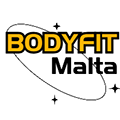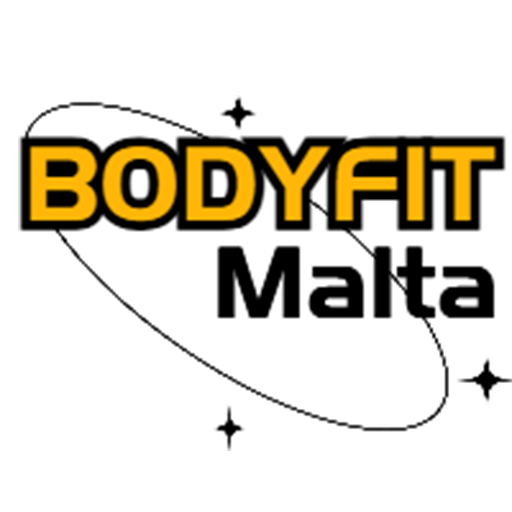In today’s fast-paced world, maintaining a nutritious diet plan is essential for a healthier and happier life. Nutrition plays a pivotal role in our overall well-being, influencing our energy levels, immune system, and even our mental health. Crafting a nutritious diet plan is not just about counting calories; it’s about making informed choices that support your health goals.
Introduction
The Importance of Nutrition
Nutrition is the foundation of good health. It provides our bodies with the essential nutrients needed for growth, repair, and daily functioning. A well-balanced diet can reduce the risk of chronic diseases, improve our quality of life, and increase longevity.
Setting the Foundation for a Healthier Lifestyle
Before diving into the intricacies of crafting a nutritious diet plan, it’s crucial to understand that it’s not just about what you eat but also about your overall lifestyle. Exercise, sleep, stress management, and hydration are integral parts of the equation.
Know more about A Beginner’s Guide to Keto Meal Planning
Understanding Nutritional Basics
- Macronutrients vs. Micronutrients
To create a balanced diet plan, you need to grasp the difference between macronutrients (carbohydrates, proteins, and fats) and micronutrients (vitamins and minerals). These nutrients play distinct roles in your body, and finding the right balance is key.
- Daily Caloric Needs
Understanding your daily caloric needs is essential for maintaining or achieving a healthy weight. It’s not about calorie restriction but rather about providing your body with the right amount of energy.
- Importance of Hydration
Water is often overlooked but is a critical component of nutrition. Staying hydrated supports digestion, circulation, and overall bodily functions.
Assessing Your Current Diet
- Food Journaling
Before making any changes, start by keeping a food journal. Documenting your daily intake helps you become aware of your eating habits.
- Identifying Problem Areas
An honest assessment of your current diet allows you to pinpoint areas that need improvement. Are you consuming too much-processed food, sugary drinks, or unhealthy snacks?
- Goal Setting
Setting clear and achievable nutrition goals is a crucial step. Whether your aim is weight loss, muscle gain, or simply better health, having defined objectives will guide your dietary choices.
Nutrient-Rich Food Groups
- Fruits and Vegetables
These are packed with vitamins, minerals, and antioxidants. Aim to fill half your plate with colorful fruits and vegetables.
- Whole Grains
Whole grains provide fiber and complex carbohydrates that keep you energized throughout the day. Opt for whole wheat, brown rice, quinoa, and oats.
- Lean Proteins
Proteins are essential for muscle repair and growth. Choose lean sources like chicken, turkey, fish, tofu, and legumes.
- Healthy Fats
Not all fats are bad. Healthy fats like avocados, nuts, and olive oil are crucial for brain health and hormone production.
- Dairy and Alternatives
Dairy products and dairy alternatives offer calcium and vitamin D for strong bones and teeth. Opt for low-fat options when possible.
Portion Control and Balanced Meals
- Plate Method
The plate method simplifies portion control. Fill half your plate with vegetables, one-quarter with lean protein, and one-quarter with whole grains.
- Serving Size Guidelines
Understanding proper serving sizes helps you avoid overeating. Use measuring cups and kitchen scales to get a sense of portion sizes.
- Balanced Meal Examples
A balanced meal includes a protein source, complex carbohydrates, healthy fats, and plenty of vegetables. For example, grilled chicken with quinoa and steamed broccoli.
Meal Planning and Preparation
- Weekly Meal Planning
Planning your meals for the week ahead can save you time and money. It also prevents unhealthy last-minute choices.
- Cooking Techniques
Learning various cooking techniques can make your meals both delicious and nutritious. Try steaming, roasting, grilling, and sautéing.
- Batch Cooking for Convenience
Cooking in batches and freezing portions can be a lifesaver on busy days. You’ll have healthy meals ready to go.
Reading Food Labels
- Understanding Nutrition Labels
Nutrition labels provide essential information about the content of packaged foods. Learn how to read them to make informed choices.
- Identifying Hidden Sugars and Additives
Manufacturers often add hidden sugars and additives to processed foods. Recognizing them can help you make healthier selections.
Special Dietary Considerations
- Vegetarian and Vegan Diets
If you follow a vegetarian or vegan diet, ensure you get all the necessary nutrients by including a variety of plant-based foods.
- Gluten-Free and Allergen-Free Options
For those with dietary restrictions or allergies, there are numerous gluten-free and allergen-free options available.
- Diets for Medical Conditions
Some medical conditions require specific dietary approaches. Consult your healthcare provider for personalized guidance.
Supplements and Nutritional Aids
- Vitamins and Minerals
Supplements can fill nutrient gaps, but they should never replace a balanced diet. Consult a healthcare professional before taking any supplements.
- Herbal Supplements
Herbal supplements are not regulated as strictly as pharmaceuticals. Research and consult with a healthcare provider before using them.
- Consultation with a Healthcare Provider
Before making significant dietary changes, consult with a healthcare provider or a registered dietitian to ensure they align with your health goals.
Eating Mindfully
- The Mind-Body Connection
Mindful eating is about paying attention to what and how you eat. It fosters a healthier relationship with food.
- Practicing Mindful Eating
Chew your food slowly, savor each bite, and listen to your body’s hunger and fullness cues.
- Avoiding Emotional Eating
Recognize triggers that lead to emotional eating and develop healthier coping strategies.
Staying Hydrated
- Importance of Water
Water is essential for digestion, temperature regulation, and detoxification. Aim to drink at least eight glasses of water a day.
- Hydration Strategies
Carry a reusable water bottle and set reminders to drink water regularly, especially if you’re prone to forgetting.
Physical Activity and Nutrition
- Exercise and Caloric Balance
Regular physical activity complements a healthy diet by helping you maintain or achieve a healthy weight.
- Pre- and Post-Workout Nutrition
Fuel your workouts with a balanced meal or snack and replenish with protein and carbohydrates after exercise.
Tracking Progress
- Keeping a Nutrition Journal
Continuing to journal your food intake can help you track progress, identify patterns, and make necessary adjustments.
- Regular Assessments
Schedule regular check-ins with a healthcare provider or dietitian to evaluate your nutrition plan and make necessary changes.
Overcoming Challenges
- Dealing with Cravings
Cravings are a normal part of life. Learn to manage them by finding healthier alternatives or practicing moderation.
- Dining Out Smartly
Eating out can be challenging, but you can make healthy choices by checking menus in advance and asking for modifications.
- Handling Social Situations
Navigating social events with food can be tricky. Plan ahead and communicate your dietary preferences or restrictions.
Sustainability and Environmental Impact
- Sustainable Food Choices
Choose foods that align with sustainable and ethical practices. Supporting local and organic options can make a positive impact.
- Reducing Food Waste
Minimize food waste by planning meals, using leftovers creatively, and composting when possible.
Frequently Asked Questions (FAQs)
1. Can I still enjoy my favorite treats on a nutritious diet plan?
Yes, you can enjoy treats in moderation. The key is balance and portion control.
2. How do I know if I’m getting enough vitamins and minerals?
Consult with a healthcare provider or dietitian who can assess your dietary intake and recommend supplements if needed.
3. Is meal timing important for a nutritious diet?
While meal timing matters to some extent, what you eat is generally more important. Focus on nutrient-rich foods and portion control.
4. What should I do if I’m not seeing the desired results from my diet plan?
Reevaluate your goals, consult a healthcare provider or dietitian, and consider making adjustments to your diet and exercise routine.
5. Can I follow a nutritious diet plan on a budget?
Yes, it’s possible to eat healthily on a budget by planning meals, buying in bulk, and choosing cost-effective ingredients.
Conclusion
Crafting a nutritious diet plan is a dynamic process that involves knowledge, self-awareness, and dedication. It’s not about perfection but about making consistent, informed choices that support your health and well-being. Remember that a healthy diet is one part of a broader healthy lifestyle that includes physical activity, stress management, and adequate sleep. By prioritizing your nutrition, you’re investing in a happier and healthier future.







